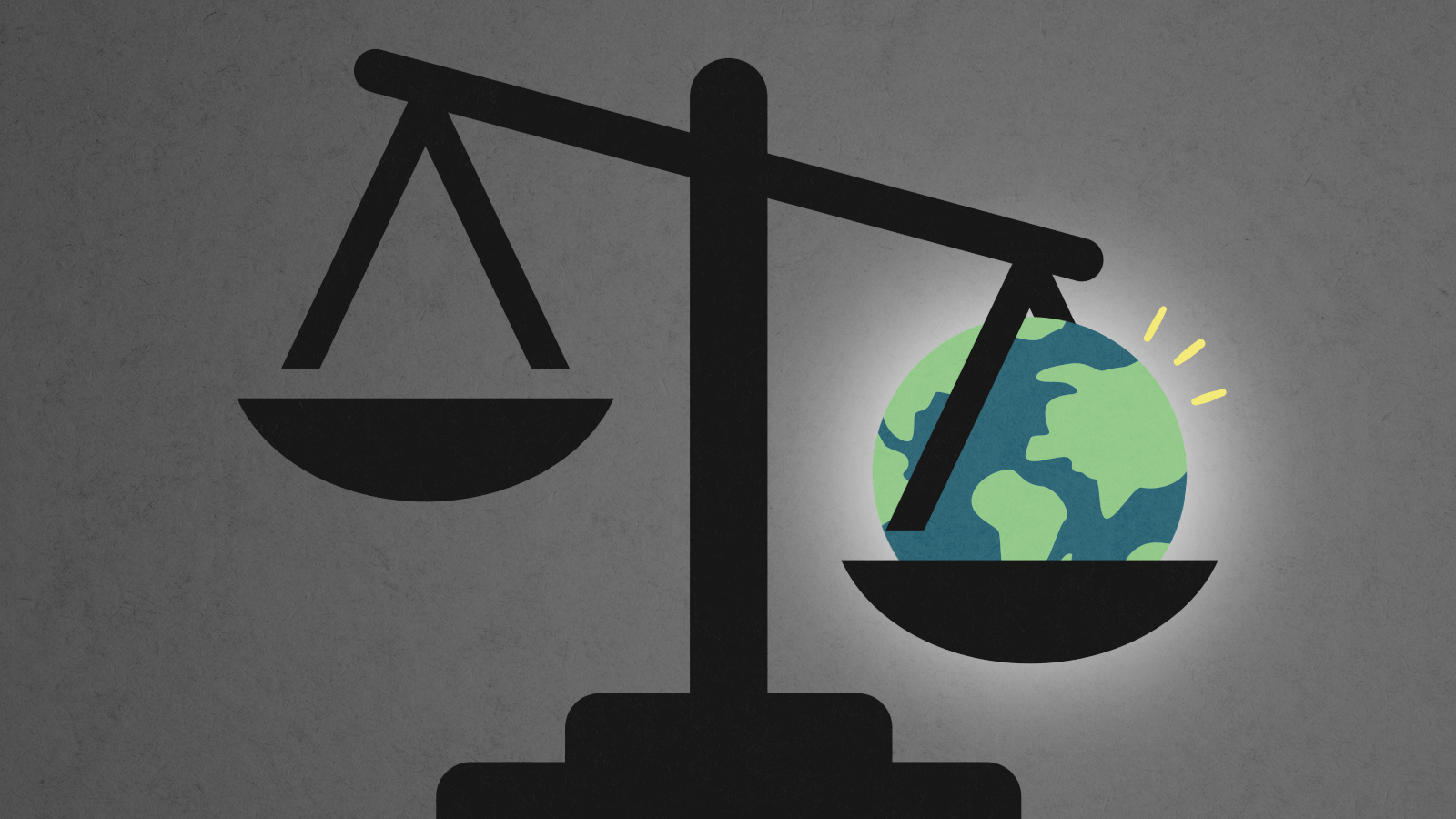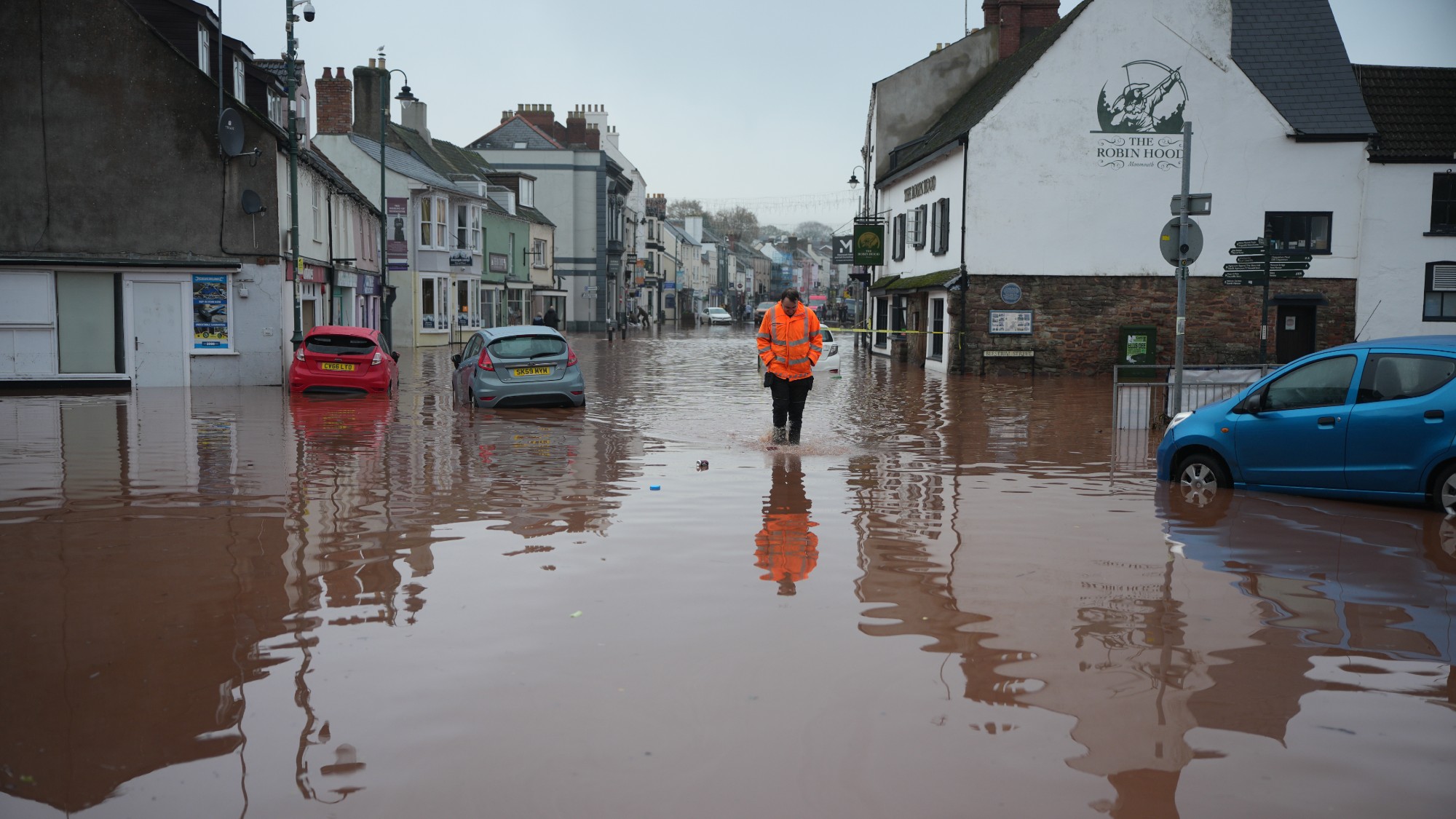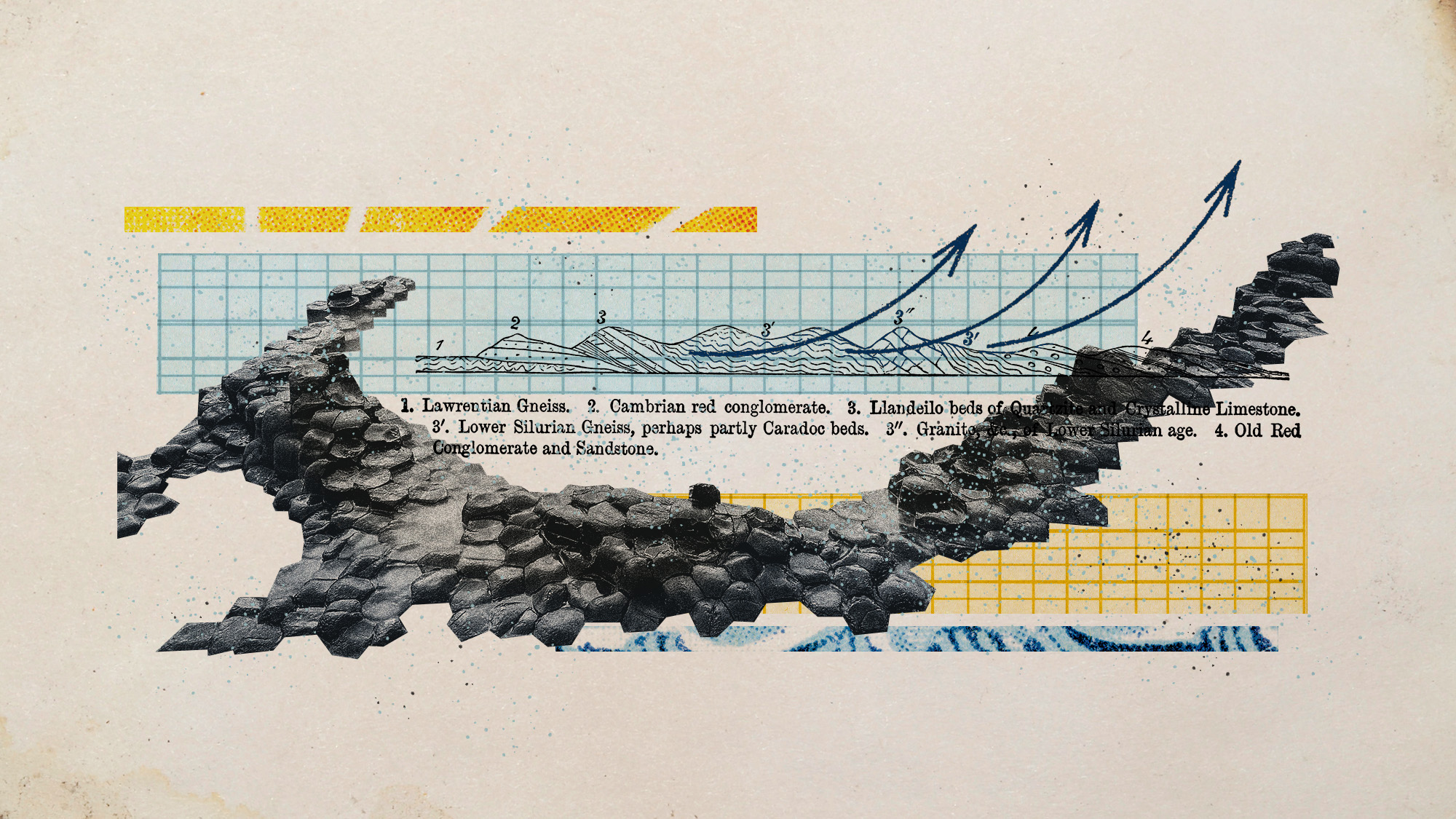The global movement to give nature 'rights'
Should ecosystems, animals, and natural objects have the same rights as human beings?


A free daily email with the biggest news stories of the day – and the best features from TheWeek.com
You are now subscribed
Your newsletter sign-up was successful
Adherents of the "Rights of Nature" movement believe ecosystems, animals, and natural objects should have legal rights similar or equal to those of human beings. Recently, the highest court in India's Tamil Nadu state agreed, ruling that "Mother Earth" has "all corresponding rights, duties, and liabilities of a living person," and humans have a duty to protect nature so it can be enjoyed by future generations. Here's everything you need to know:
When did the Rights of Nature movement start?
It began in 1972, when Christopher D. Stone, a law professor at the University of Southern California, published a law review article titled Should Trees Have Standing? Toward Legal Rights for Natural Objects. Stone wrote he was "quite seriously proposing that we give legal rights to forests, oceans, rivers, and other so-called 'natural objects' in the environment — indeed to the natural environment as a whole." Otherwise, he said, "natural objects" were only valued in relation to their worth to humans, and could be destroyed.
That same year, the case of Sierra Club v. Morton reached the Supreme Court. The Sierra Club wanted to block the development of a ski resort in the Sierra Nevada Mountains, and while the Supreme Court rejected the suit, Justice William O. Douglas wrote in his dissent that if "a ship has a legal personality, a fiction found useful for maritime purposes," and a corporation "is a 'person' for purposes of the adjudicatory processes ... So it should be as respects valleys, alpine meadows, rivers, lakes, estuaries, beaches, ridges, groves of trees, swampland, or even air that feels the destructive pressures of modern technology and modern life."
The Week
Escape your echo chamber. Get the facts behind the news, plus analysis from multiple perspectives.

Sign up for The Week's Free Newsletters
From our morning news briefing to a weekly Good News Newsletter, get the best of The Week delivered directly to your inbox.
From our morning news briefing to a weekly Good News Newsletter, get the best of The Week delivered directly to your inbox.
What kind of rights do activists want nature to have?
Advocates believe there needs to be a new legal framework that gives nature the same rights as humans; this highest level of protection is necessary, they argue, because existing laws are not doing enough to address such issues as climate change and environmental degradation. Under the Rights of Nature doctrine, ecosystems are recognized as having the right to exist and regenerate without any human interference, as well as the right to defend themselves in court. A guardian can act on behalf of the ecosystem — usually an expert individual or group that knows how to care for and manage the ecosystem, the Columbia Climate School states.
Florida environmentalist Chuck O'Neal told Inside Climate News last year that he believes rivers, mountains, and forests have rights, and this should have been included in the Constitution. "We have to find a balance between nature and commerce, and right now we're so far out of balance that the world is spinning out of control," he said. "We can create a new system, building a body of law that recognizes fundamental rights of nature. I think it's our last and best hope to save the planet."
What does the ruling in India mean for the Rights of Nature?
In April, the Madras High Court in India's Tamil Nadu state decided that nature should receive "all corresponding rights, duties, and liabilities of a living person," with Justice S. Srimathy writing in the opinion that "the past generations have handed over the 'Mother Earth' to us in its pristine glory and we are morally bound to hand over the same Mother Earth to the next generation."
The case was brought before the court by A. Periyakaruppan, a local government official who was forced to retire and lose some of his pension after he gave a deed of protected forest land to a private individual. He argued that this was done at the request of a senior official, and after the deal was made public, the deed was corrected and the land returned. He requested that his punishment be reversed, but the court, finding that he committed an act "against nature," decided to reduce it to a six months suspension.
A free daily email with the biggest news stories of the day – and the best features from TheWeek.com
In order to impose the Rights of Nature, the court invoked "parens patriae jurisdiction," which gives the government the power to serve as a guardian for someone unable to care for themselves. "No one is protecting Mother Earth, so the court stepped in," Margaretha Wewerinke, an international law professor at Leiden University in the Netherlands, told Inside Climate News. "It's not only conceptually about Mother Earth having rights, but the court saying we as judges need to step in and grant this protection."
What other countries have Rights of Nature laws?
In 2008, Ecuador became the first country to enshrine the Rights of Nature — or the Rights of Pachamama (Mother Earth) — in the constitution. It recognizes that nature is "where life is reproduced and occurs" and has the right to "integral respect for its existence and for the maintenance and regeneration of its life cycles, structure, functions, and evolutionary processes. All persons, communities, peoples, and nations can call upon public authorities to enforce the rights of nature."
In several other countries, new laws have been introduced, court decisions issued, and constitutions amended to include the legal rights of nature. In 2019, Bangladesh gave all rivers legal protection, and in February, the president of Panama, Laurentino Cortizo, signed legislation that defines nature as "a unique, indivisible, and self-regulating community of living beings, elements, and ecosystems interrelated to each other that sustains, contains, and reproduces all beings." In the United States, Rights of Nature laws have been imposed by more than 30 local governments and communities.
What kind of Rights of Nature lawsuits have been filed?
In 2011, the Global Alliance for Rights of Nature led a lawsuit against a construction company in Ecuador that was building a road near the Vilcabamba River and dumping an excessive amount of rocks and debris into the water. The Provincial Justice Court of Loja ruled in favor of the river, but the Columbia Climate School says that the construction company ignored the decision, and the Global Alliance for Rights of Nature reportedly did not have enough money to file a second lawsuit.
In 2017, legal personhood was granted to the Whanganui River in New Zealand, with Parliament finalizing the Te Awa Tupua Act. Under this measure, two guardians were appointed to the river: a representative of the Maori indigenous people and a representative of the government. This was the culmination of a battle going back 160 years, when the Maori first began fighting to get the river legal protection.
Catherine Garcia has worked as a senior writer at The Week since 2014. Her writing and reporting have appeared in Entertainment Weekly, The New York Times, Wirecutter, NBC News and "The Book of Jezebel," among others. She's a graduate of the University of Redlands and the Columbia University Graduate School of Journalism.
-
 Political cartoons for February 15
Political cartoons for February 15Cartoons Sunday's political cartoons include political ventriloquism, Europe in the middle, and more
-
 The broken water companies failing England and Wales
The broken water companies failing England and WalesExplainer With rising bills, deteriorating river health and a lack of investment, regulators face an uphill battle to stabilise the industry
-
 A thrilling foodie city in northern Japan
A thrilling foodie city in northern JapanThe Week Recommends The food scene here is ‘unspoilt’ and ‘fun’
-
 The environmental cost of GLP-1s
The environmental cost of GLP-1sThe explainer Producing the drugs is a dirty process
-
 Why scientists want to create self-fertilizing crops
Why scientists want to create self-fertilizing cropsUnder the radar Nutrients without the negatives
-
 ‘Jumping genes’: how polar bears are rewiring their DNA to survive the warming Arctic
‘Jumping genes’: how polar bears are rewiring their DNA to survive the warming ArcticUnder the radar The species is adapting to warmer temperatures
-
 How will climate change affect the UK?
How will climate change affect the UK?The Explainer Met Office projections show the UK getting substantially warmer and wetter – with more extreme weather events
-
 The Southern Ocean is holding in a ‘burp’
The Southern Ocean is holding in a ‘burp’Under the radar The heat from the past can affect the future
-
 Builders return to the stone age
Builders return to the stone ageUnder the Radar With brick building becoming ‘increasingly unsustainable’, could a reversion to stone be the future?
-
 Scientists want to use enhanced rock weathering to cool the Earth
Scientists want to use enhanced rock weathering to cool the EarthUnder the radar Rock dust could trap atmospheric carbon
-
 Endangered shark meat is being mislabeled and sold in the US
Endangered shark meat is being mislabeled and sold in the USUnder the radar It could cause both health and ecological problems
